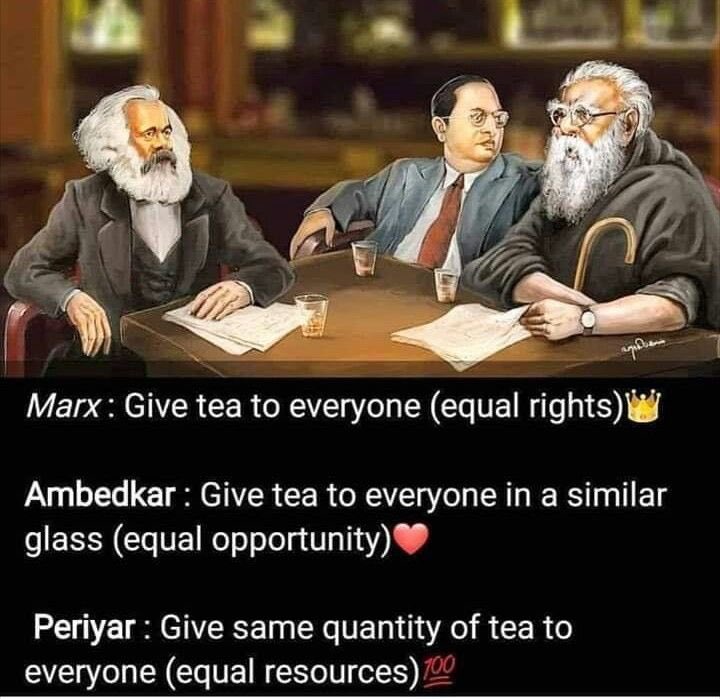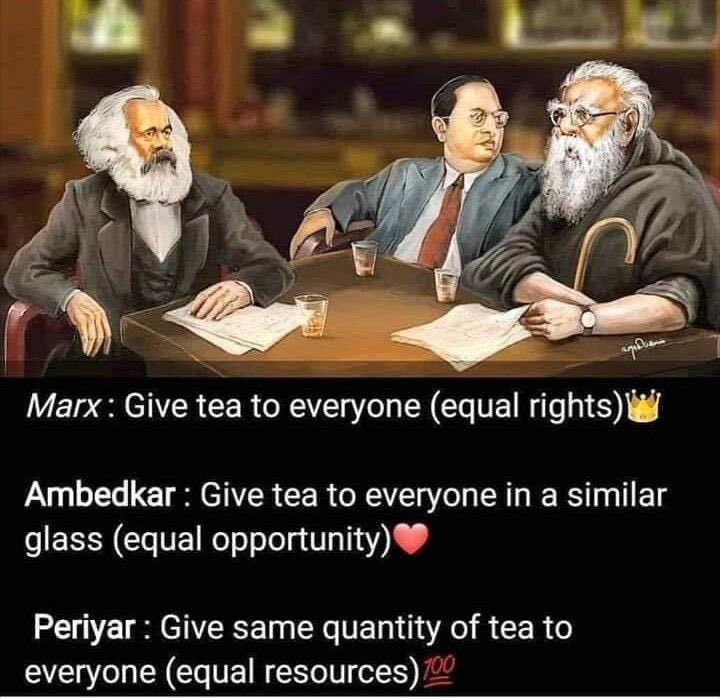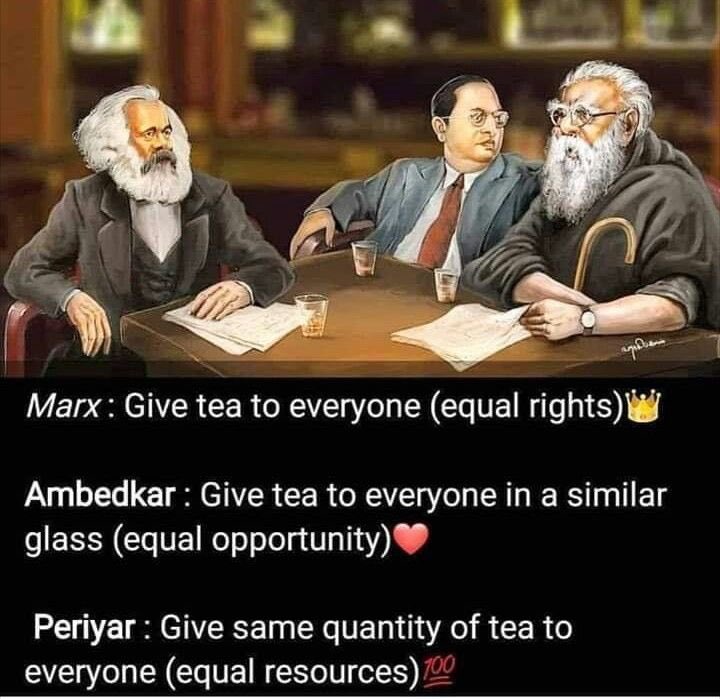A) it’s about the identity of the person.
B) it’s about the culture of the land.
You can talk about caste discrimination, but it has to be a two way street.
When a “Dalit” insults a “Brahmin”, law must allow victim to file complaint.
The primitive societies talk in terms of class instead. Sadly, the anti-caste brigade is rooted in this primitive dialectic.
Civilisations sustained over millennia have evolved more than these primitive societies.
Defined roles is a caste-based society is work of evolution.
There are going to be migration from one set of roles to another.
In a caste-based society, both happen, have happened, and will continue to happen.
Rigidity is only imposed by those hide the truth.
Equal opportunity doesn’t mean equal outcomes.
Free markets have provided more equality than wokeness.
By providing equality of access, this can be resolved.
In the tea analogy, lack of tea shop or tea vendor denying access despite customer having money is the concern.
This is against the principle of equality.
In the tea analogy, ensuring that no one with money is denied tea(and we are assuming stock hasn’t run out) is the key.
In terms of jobs, it means anyone who is meeting criteria gets the job.
It’s doubly wrong because jobs are a limited resource, involving competition.
Competition is a great leveller. When only merit is considered, the best(most qualified) should get the job.
Is it because of lack of opportunity or lack of access or lack of sufficient merit.
Remedial actions need to be assigned based on that.
That is the core principle.
Objective part involves checking requisite skills.
Subjective part involves identifying who has better skill among those who meet the objective criteria.
Among two people, why is one chosen over the other.
How do you evaluate who among the two is more passionate about the job. This can only be judged by how well they communicate.
This skill is subjective, but a suitable rubric with say a 1 to 3 or a 1 to 5 scale can capture it.
In the jobs example, it’s the lack of sufficient vacancies.
Essentially, the Indian problem is a demand side construct.
Take the example of doctors. There are states where doctors after are working for as low as ₹10,000-₹20,000, barely able to meet personal expenses let alone the educational loans. There are states/districts with no doctors available.
At the same time, there is a huge demand problem in another part of India.
This disparity is one of the main concerns.
In this thread, demand is about existence of vacancy and supply is about availability of qualified people to fill that vacancy.
To address demand, we have to increase supply.
The other is to create more vacancies in places with more supply of skilled workers. An alternative is to guide skilled workers to move to places with relative scarcity, or places with vacancies.
India’s current problems are so basic that even without caste based constraints imposed by the myopic reservation policy, it’s already a difficult problem to solve. Caste only complicates the matter.
Equality can come into picture only when there is available opportunity.
That brings us to the urban rural divide.
IITs and NITs have all been urban focused.
AIIMS was Delhi focused.
Immediately, you will find both gdp and per capita income plummet to the bottom levels.
The reason: urban areas provide role mobility of people from the largely functional castes. Rural areas are not developed enough to provide access.
A child need not be denied access just because they grew up in rural areas.
A child need not be denied access because of caste or religion.
At the end of the day, equality of opportunity is all about enabling social mobility.
There is only one impediment for development: socialism/wokeness.
It’s time to focus on fixing structural issues, and caste doesn’t matter there.
It’s time we move out of casteist shackles by getting back to our roots.
Remember Ramayana was accessible to all, even though Valmiki Ramayana was not read by all.
Let’s get back to being Indian again.





